
By Joshua Tyler
| Updated
There have been plenty of epic space battles in science fiction movies and TV, but at the end of the day, the best space battles are going to be determined between the two biggest stellar franchises: Star Trek and Star Wars. Maybe Babylon 5 would have been in the running with a bigger budget and modern computers. And if you’ve seen the 2004 reboot of Battlestar Galactica, you know how exciting those Viper fights can be.
But in the end, it comes down to Star Trek versus Star Wars, and their approaches couldn’t be more different. Star Wars space battles are exciting dogfights in which fighters zip around the cosmos against a backdrop of stationary mega-ships slugging it out. Star Trek space battles are more weighty, with cruisers considering tactics and making moves with maximum efficiency and drama.
Which is better? This channel sides with Starfleet, and we’re about to show you why. These are the best space battles in Star Trek.
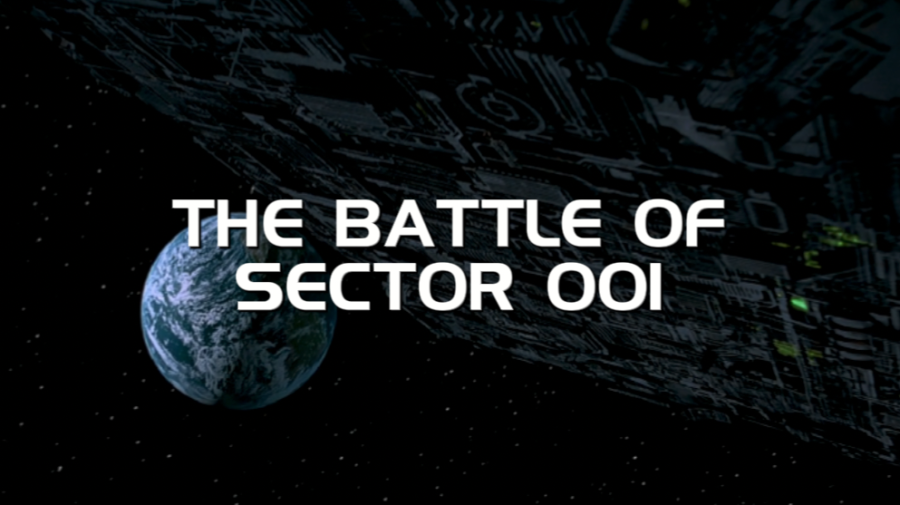
4. The Battle of Sector 001 in Star Trek: First Contact
Star Trek: Generations disappointed fans, and First Contact wastes no time in righting that movie’s wrongs by opening with a big-screen starship battle Generations failed to deliver.
With the Enterprise on the way, a desperate fleet attempts to stop a Borg cube closing in on Earth. The task force is led by Deep Space Nine’s hero ship, the Defiant, under the command of everyone’s favorite Klingon, Worf. Despite leading a fleet containing some of Starfleet’s newest battle innovations, Earth’s defenders are totally overmatched, and the situation is desperate.
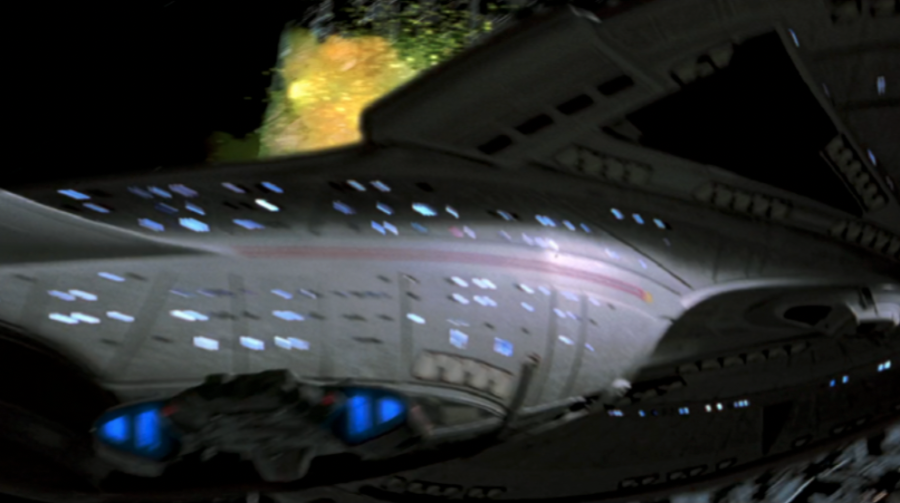
On the verge of destruction, Worf orders Ben from Parks and Rec to take the Defiant to ramming speed, no doubt reveling in the thought of an honorable death. At the last possible moment, the Enterprise appears out of nowhere to blunt the Borg cube’s attacks. It’s not just the Enterprise but the new Enterprise E, a ship specifically designed to take down the Borg.
The Borg are old foes of the Federation, and in every previous encounter, they always have the upper hand, and even with this shiny new Sovereign class Enterprise to fight them, that’s what the audience expects. Instead, the Enterprise rips the Borg cube to shreds, prompting the Borg queen to eject and embark on a dicey time travel scheme instead, kicking off the movie’s story in the biggest way possible.
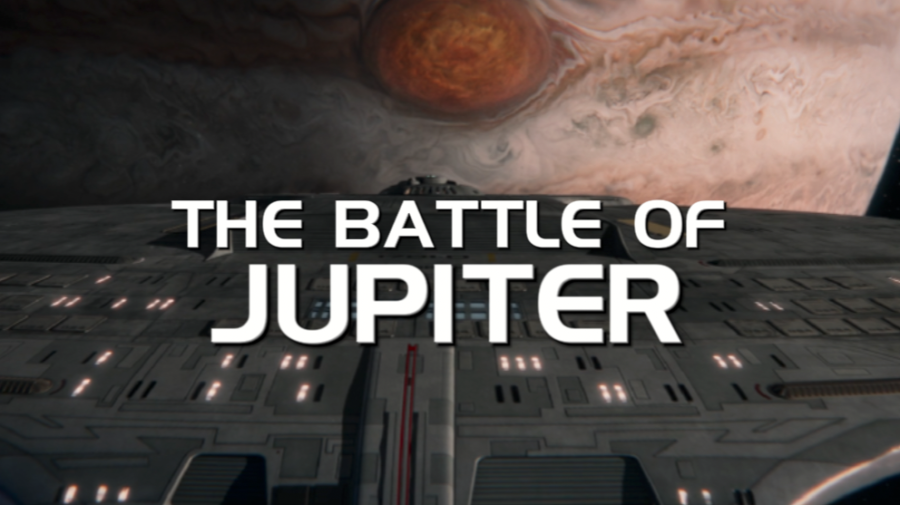
3. The Battle of Jupiter in Star Trek: Picard Season 3
Hampered by its 1980s television budget, Star Trek: The Next Generation rarely showed any ship combat on screen. When it did, it was over quickly or filmed in a way that worked around time constraints and the difficulty of using physical models.
When the Next Gen crew finally got a movie, most thought that would mean we’d finally get to see what the Enterpise D can do on a big screen budget. But the Star Trek: Generations script had the Enterprise D go out like a chump due to a lame technicality involving shield frequencies and bad decisions by Riker.
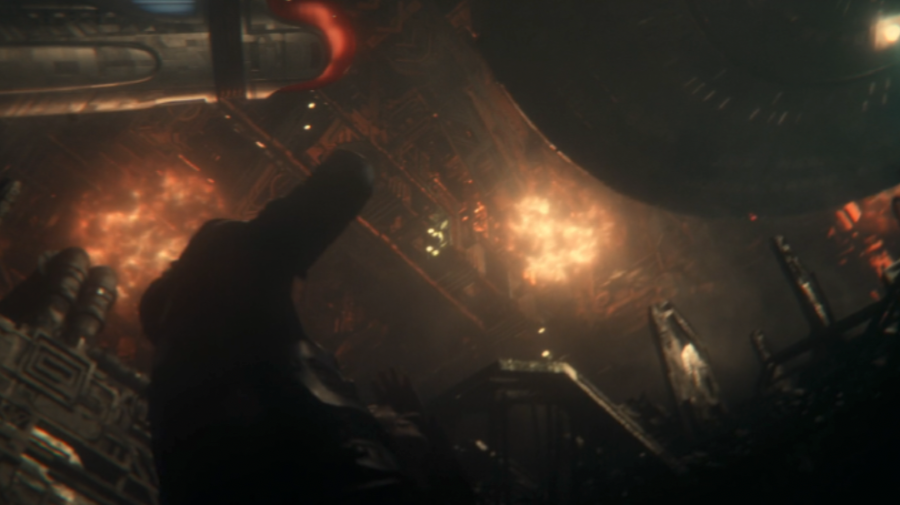
When Star Trek: Picard season 3 showrunner Terry Matalas decided to resurrect the Enterprise D, it was a chance to right that wrong. With modern CGI at his command, Matalas dropped the Enterprise D into the battle of a lifetime against a Borg Cube so big it might as well have been the Death Star.
In what surely was no accident, the Enterprise’s path to defeating it ends up looking a lot like the Millennium Falcon run against the second Death Star in Return of the Jedi. Maybe that’s a little silly in a Star Trek context, but it’s loads of fun, and by the time it happens, everything else in Picard season three has been so good that it’s totally earned.
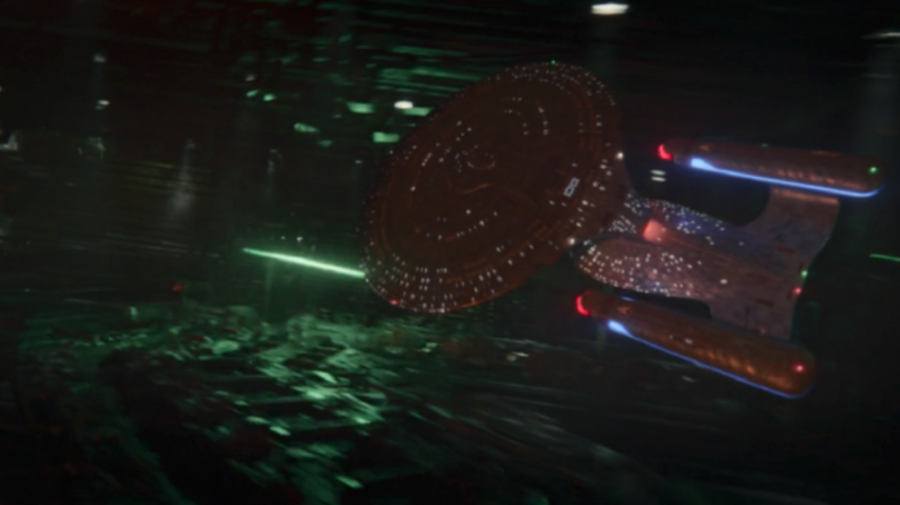
Star Trek has never done anything quite like it and probably never will again. It’s one of the franchise’s most energetic space battle sequences.
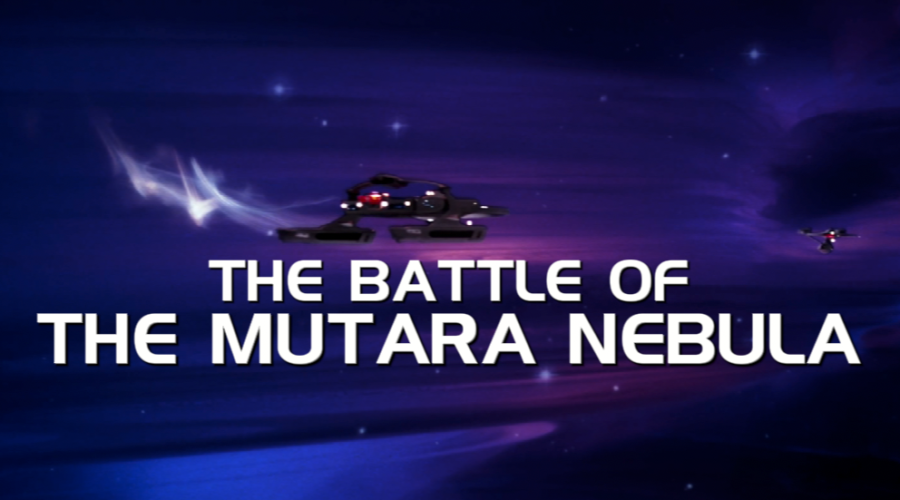
2. Battle of the Mutara Nebula in Star Trek II: The Wrath of Khan
Everything that happens in Star Trek II: The Wrath of Khan leads to the Mutara Nebula.
Captain Kirk has been on the brink of defeat, and he knows it’s his own fault. He screwed up. He ignored Saavik’s warnings, and he let Khan get the drop on him. People are dead, and the crew he has left alive are only breathing because of luck.
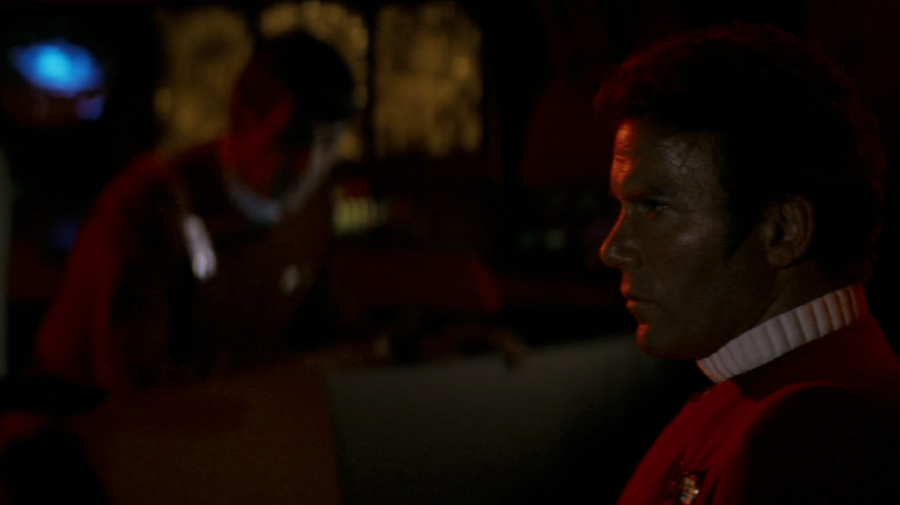
Both the Enterprise and the Reliant are damaged and hobbled, but the Enterprise is worse off and that means the Reliant has the edge. The Enterprise crew is facing a brilliant madman who will stop at nothing until they’re dead. It’s the perfect setup for the ultimate one-on-one starship battle, and it’s still the gold standard of space battles for many Star Trek fans.
It’s strange to think of now, but before The Wrath of Khan, Star Trek had never shown audiences a full-on starship battle. The Motion Picture had no real fighting and the original series didn’t have the budget to show much beyond cuts back and forth between fuzzy ship models floating stationary in space.
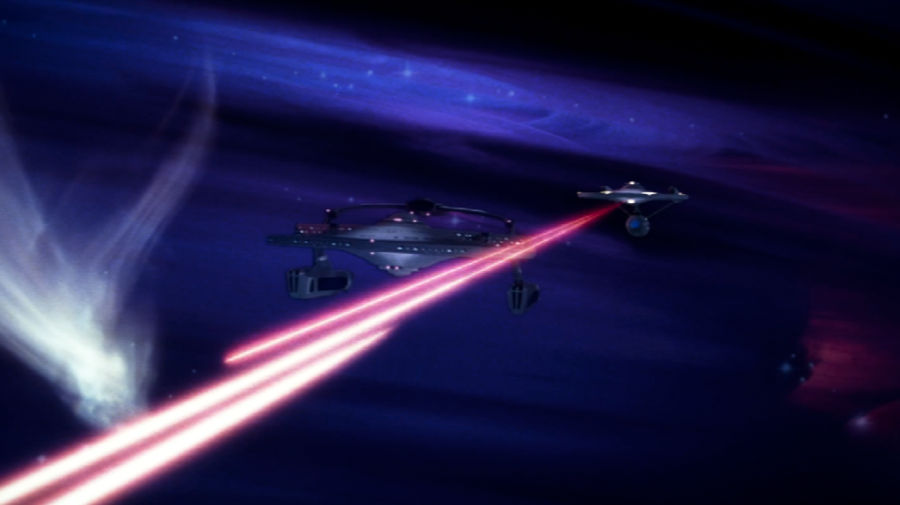
From the outset, Star Trek II director Nicolas Meyer set out to change the course of Star Trek by creating a movie inspired by naval traditions. His original scripted plan for the final ship battle in the Wrath of Khan had it playing out like an ancient sailing ship, cannon-firing slugfest. The Reliant and the Enterprise were to sit in open space, exchanging broadsides until someone won.
Production designer Joe Jennings pointed out that this was wrong. He thought spaceships would go at each other in high-speed passes in open space circumstances.
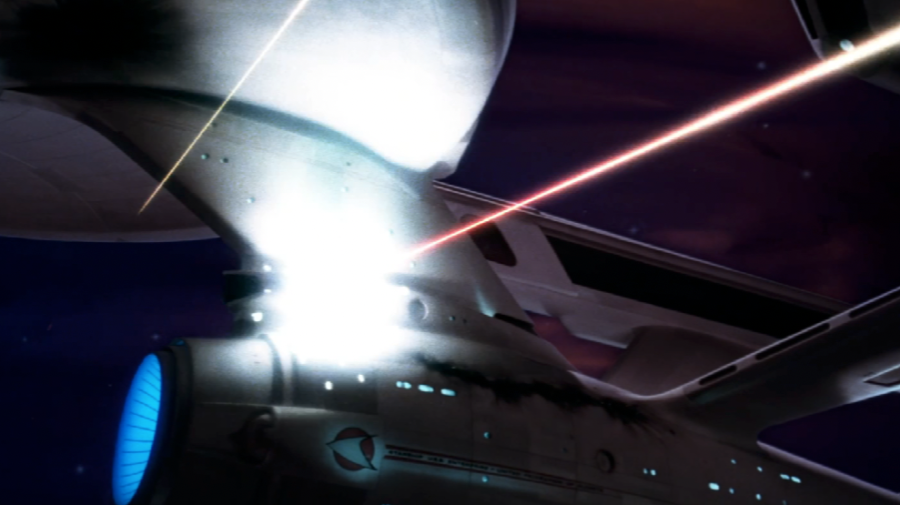
So, with the help of Art Director Mike Minor he came up with the Battle of the Mutara Nebula, a situation where both ships would be hobbled and visibility would be limited. This allowed Meyer to film the final Enterprise versus Reliant match more like an intense submarine battle or a Master and Commander type sail pursuit wrapped in a thick fog. The fact that they pulled it off using only physical models, without any CGI, makes Wrath of Khan’s Mutara battle even more impressive.
The setting is beautiful and visually unique. The strategies involved are interesting but also easy to understand.
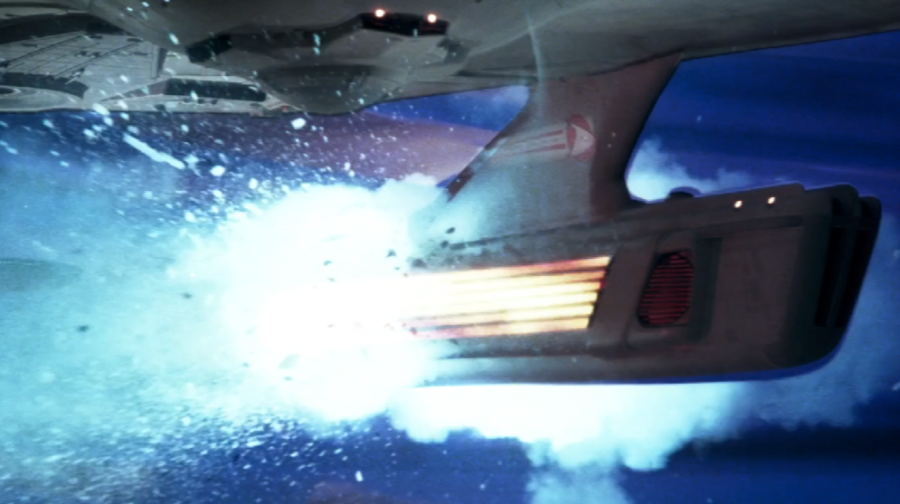
Both commanders are in situations where they’re asked to put into practice the lessons they should have learned throughout the course of the movie, bringing the movie’s plot full circle The battle is decided when Khan fails to adapt, while Kirk learns from his earlier mistakes, takes the advice of his officers, and wins. A win that costs him the life of his best friend.
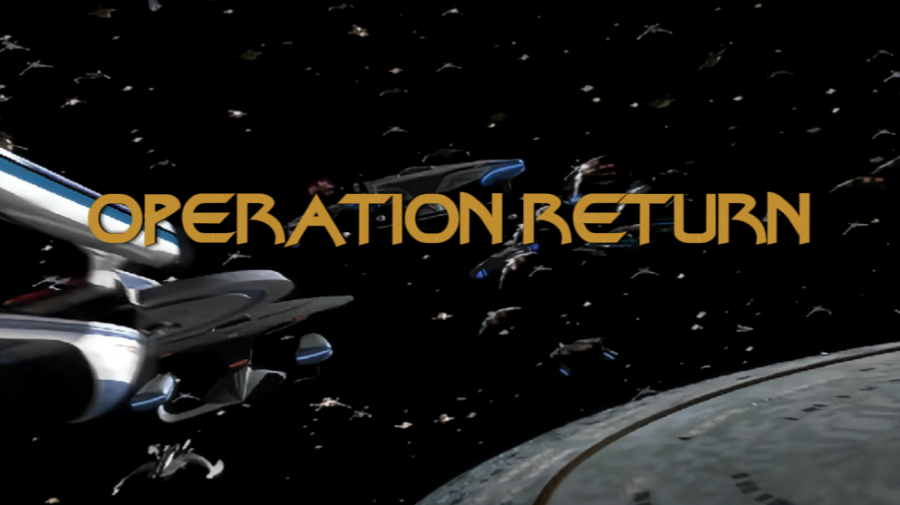
1. Operation Return in Star Trek: Deep Space Nine’s “Sacrifice of Angels”
Winning will only buy our heroes more death and war. Losing this conflict means losing everything. That’s the setup for Operation Return, the best space battle in Star Trek.
It happens in season 6 of Star Trek: Deep Space Nine at the end of what is also one of the biggest and best story arcs in the franchise’s history. The episode is called “Sacrifice of Angels,” and it’s the last of an interconnected six-episode run in which every episode before it ended with “To Be Continued.”
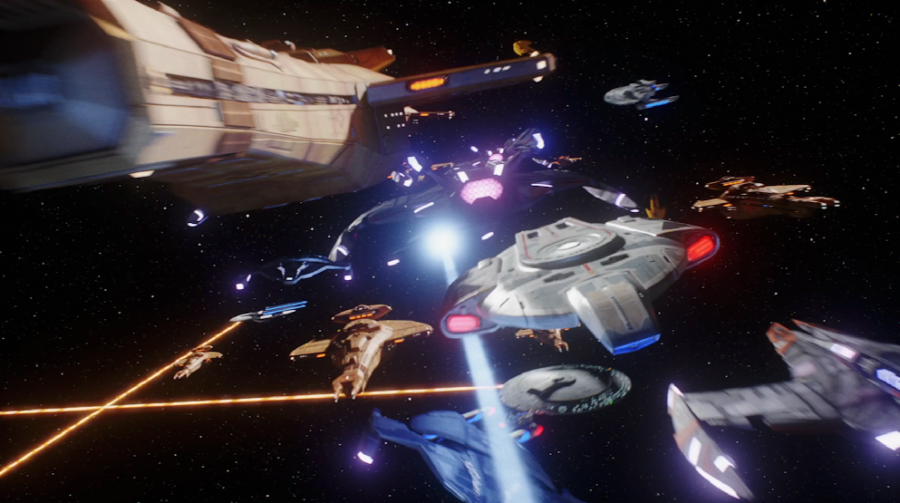
The battle gets its name from the Starfleet’s chief strategist Captain Benjamin Sisko. He plans a desperate assault to break through enemy lines and retake Deep Space Nine before the Dominion can clear the way for reinforcements from the Gamma Quadrant.
The irony of Operation Return is that Sisko’s plan fails. Gul Dukat, in command of the Dominion fleet, sees through every bit of strategic trickery, successfully luring the outmatched Federation fleet into a trap. It’s only thanks to an unexpected, last-minute reinforcement from the Klingons, flying out of the sun in formation like Han Solo taking on the Death Star or Gandalf arriving at Helm’s Deep, that Sisko survives and breaks through enemy lines. But not until it’s too late.
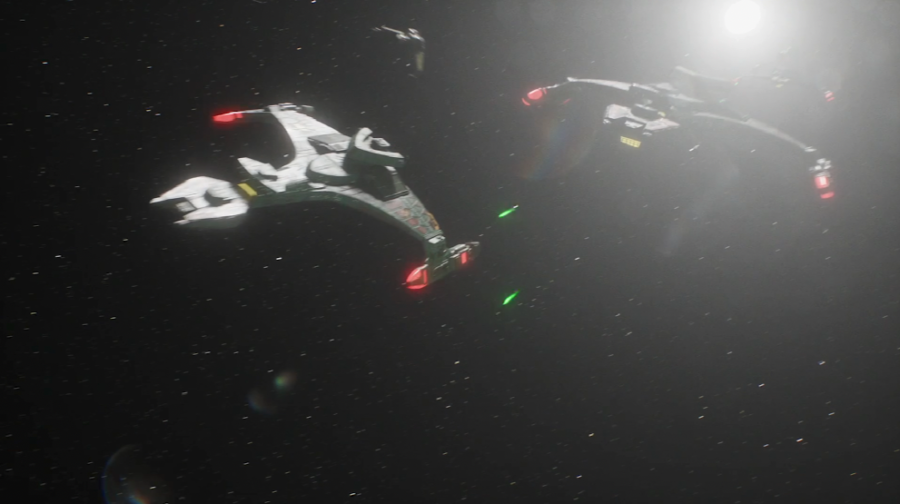
The desperate futility of all that death and destruction only makes it more impactful. The good guys do win in the end, no thanks to Sisko’s battle planning, but only after we witness the most eye-popping, explosion-filled, starship-shredding conflict in Star Trek.
Over 200 Federation starships and Klingon birds of prey engage an even bigger enemy fleet comprised of both Carsassian and Dominion ships over the course of the episode’s lengthy space battle sequence. It’s something that wouldn’t have been technologically possible to show on screen in the days of motion-controlled practical models.
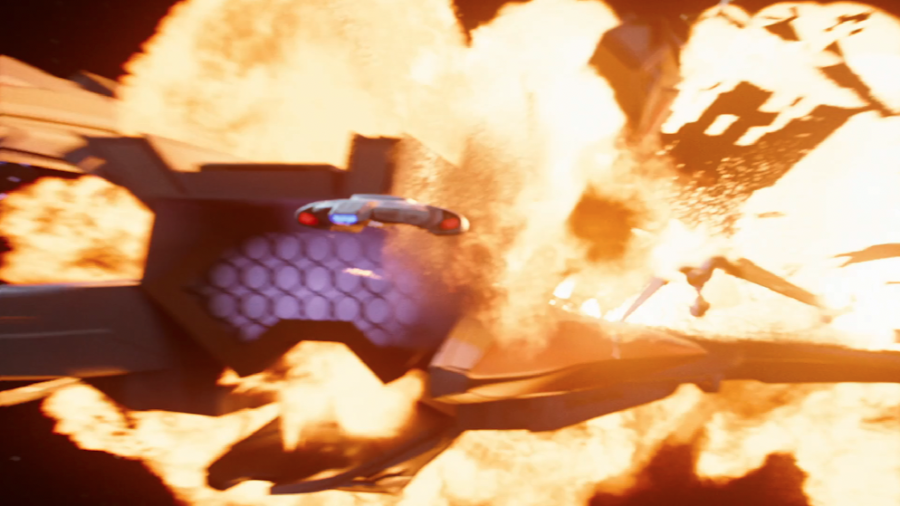
Deep Space Nine began experimenting with using computer-generated effects for its space sequences back in season 3. By the time season six rolled around in 1997, they’d mastered it and grown so confident in their abilities that the show decided to do something new with their CGI technology.
“Sacrifice of Angels” was the first Star Trek episode to use only computer-generated imagery exclusively. It was such a massive undertaking that the series hired two separate digital effects companies to collaborate on making it. Digital Muse created the new ships needed for the Federation side of the battle, while Foundation Imaging created the Dominion Fleet. Digital Muse then put the first half of the battle together while Foundation Imaging animated the second half sequence in which the Defiant breaks through to Deep Space Nine.
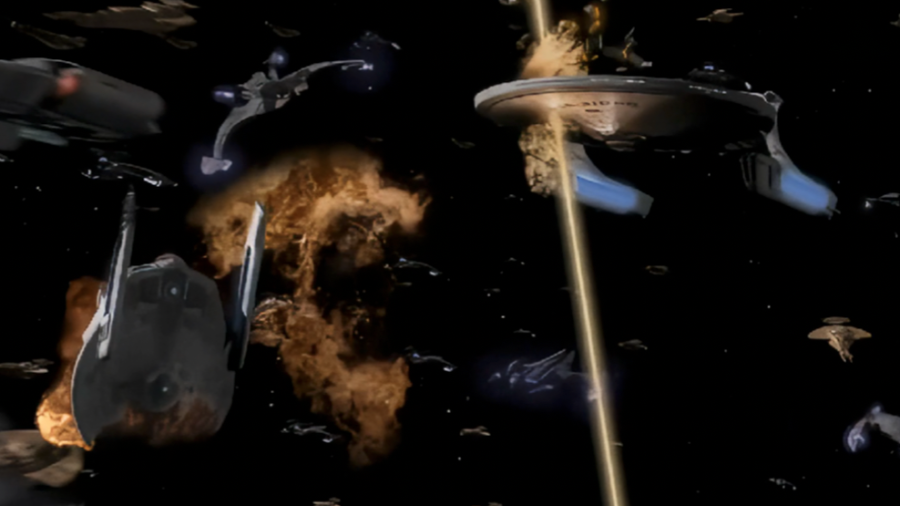
To ensure some level of tactical realism, DS9’s producers consulted with military expert Dan Curry and Bradley Thompson, a former pilot, to develop strategies to be used by the struggling fleets.
Cool special effects and exploding starships alone don’t make a great space battle. “Sacrifice of Angels” combined those with the incredible stakes the show had been building up for six episodes to create the ultimate payoff for patient fans who’d been brought to a boiling point in the rising tension.
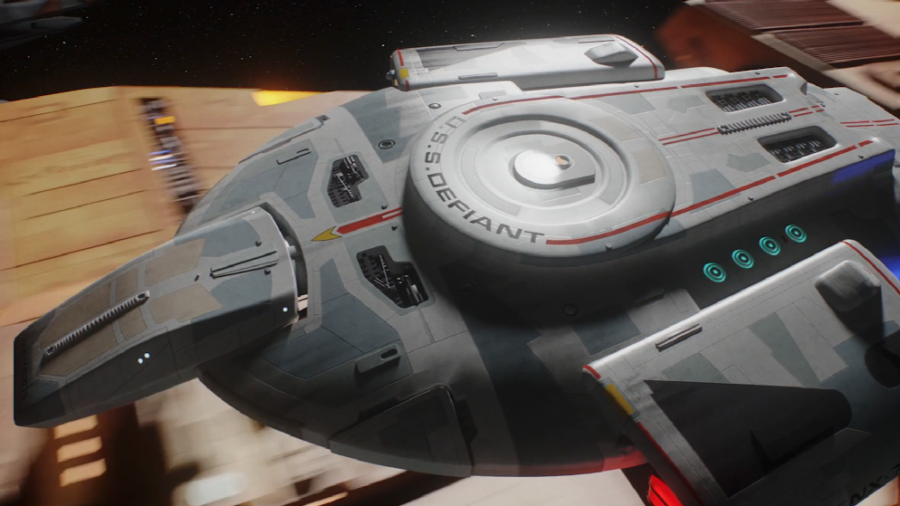
It worked. All of it. 6.4 million viewers tuned in, in 1997 when the scene aired. “Sacrifice of Angels” is now regarded as one of the very best episodes of Star Trek.
The battle scene was so beloved that when showrunner Ira Steven Behr had to pick one scene from DS9 to remaster in high-res HD, he picked this one for the retrospective documentary What We Left Behind. It’s the only Deep Space Nine sequence that’s ever been remastered and it’s the best space battle in Star Trek.

Leave a Reply